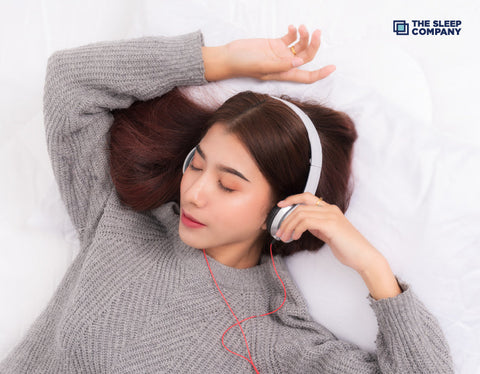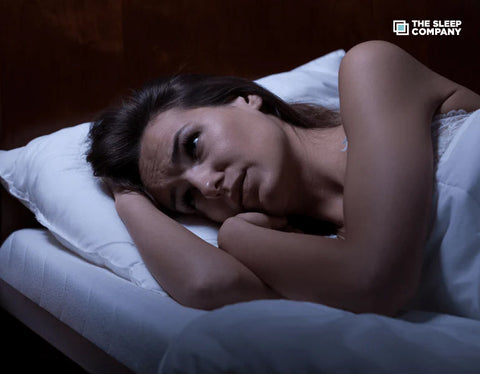My Cart

How Does Sleeping on the Floor Affect You?

Since ancient times, Asian countries like India have slept on the floor for their whole life without much comfortable mattress. Though it sounds weird, low-class, and a difficult concept to people across the world, it isn’t.
In fact, if anything, it has been most beneficial, practiced, and approved by famous sages, scholars, and experts for centuries. So what are these extraordinary benefits sleeping on the floor gives to us? Let’s take a look at them.
Helps in relieving back pain

Back pain is double trouble for people. It keeps you from performing any activities and prevents you from sleeping at night without any issues.
Many suggest using orthopedic mattress with extra firmness to reduce back pain. However, in countries like India and Japan, people have followed the habit of sleeping on the floor for the very same reason to get rid of back pain.
Sleeping on the floor is effective for people suffering from back pain, providing a firmer surface and adequate back support.
Though there could be many reasons a person is suffering from back pain, such as pregnancy or chronic back injury, trying to sleep on the floor can be beneficial in many cases.
Sciatica pain relief

The pain of sciatica is equally troublesome as back pain. It is caused in the lower region of the body as the sciatic nerve gets hurt. Also, people suffering from sciatica pain need to sleep on a firm surface as the soft surface cradles the body worsening the issue. Compared to firm mattresses, the floor provides better firmness that can help relieve sciatica pain and sleep worries.
Improves posture

Spine misalignment leads to poor body posture, further escalating back pain and other issues. Keeping the spine in its natural straight form is mandatory to get a good body posture.
When you sleep on a softer surface or mattress, your body sinks into it, incorrectly changing spinal alignment and body posture. But, a firm surface allows the spine to stay straight and injury-free. The floor’s hard and flattened texture gives you the required firmness to prevent spinal injuries, misalignments, and mis constructed body posture.
Maintains body temperature

When we sleep, our body’s core temperature decreases by a few degrees. Laying on a mattress can cause your body heat to be trapped, keeping your body temperature hotter and making your nights sleepless and sweaty.
The floors are naturally colder than mattresses, which helps in reducing body temperature quickly and allowing you to sleep calmly at night. Despite all the advantages of sleeping on the floor we get, certain drawbacks sleeping on the floor has,
Such as,
1. Increases back pain
Though sleeping on the floor relieves back pain for many people, some might find it increasing.
The floor’s hardness can cause pain in different body pressure points, such as the hips and shoulders. Also, long nights on the hard floor can cause stiffness and soreness, further enhancing body pain, including back pain.
2. Allergies
The floor is prone to get dirtier with dust, mites, moulds, bacteria, and other harmful microbes. Also, rugs and carpets on the floor become an abode for many harmful allergens.
These harmful and unseen microbes can make an allergy-prone person get infected easily and cause allergies like runny nose, sneezing, itchy eyes, skin rashes, respiratory problems, etc.
3. Too much coldness
Though the coldness of the floor can help you reduce body temperature, too much colder floor can be problematic, especially during winters.
A rapid fall in body temperature can result in hypothermia, breathlessness, lowered heartbeat, unconsciousness, and other issues. And the chances of getting sick are to sleep on the cold floor without proper warm support such as a mattress, rug, or carpet.
Tips to make sleeping on the floor comfortable

Though many are not used to sleeping on the floor due to curious human nature, most are eager to try it. However, shifting directly from sleeping on a plush, comfortable mattress to a hard and cold floor can create health issues.
Therefore, for those keen to try sleeping on the floor, here are some tips to make it easier and more functional.
- Do not rush into sleeping directly on the hard floor, but try using a mattress first and then slowly reducing its thickness, finally halting using a thin mat or a rug.
- Use pillows beneath the head, lower back, and knees to avoid issues caused due to a gap created between the plane surface and these body parts.
- Sleeping overnight on the floor on the first day can be difficult. Therefore, start sleeping for a shorter period on the floor, gradually increasing it into complete night sleep.
- Use rugs, thick carpets, or thin mattresses on the floor to avoid getting cold and sick.
- Clean the floor regularly with disinfectants to prevent it from being an abode of dust and other allergens.
Conclusion:
Sleeping on the floor isn’t a new practice in many Asiatic countries; however, recently, it is becoming trendy across other countries.
However, before starting to sleep on the floor, check your physical ability, issues, and solutions for it. Take advice from the doctors if needed and start sleeping on the floor.





























































